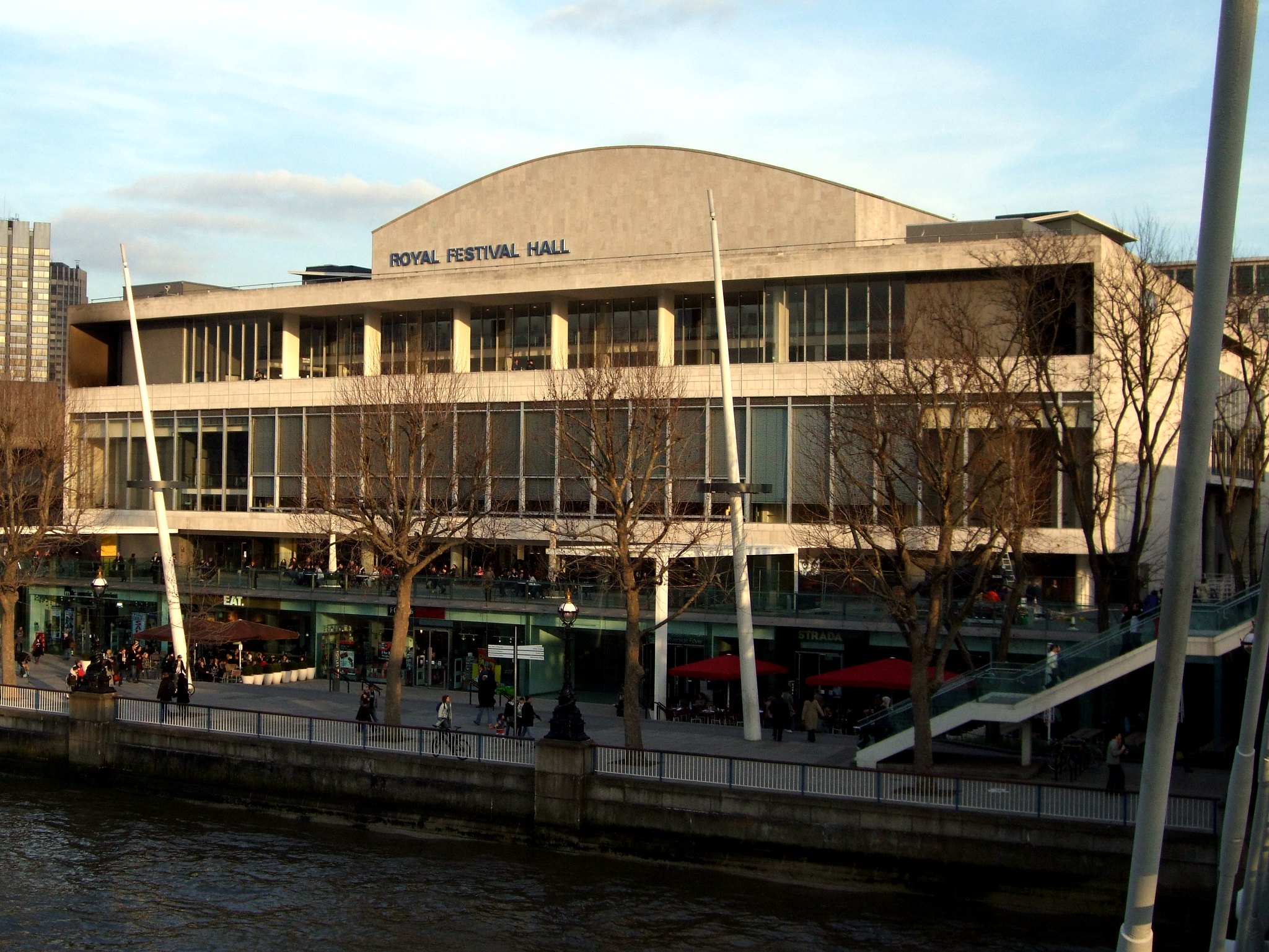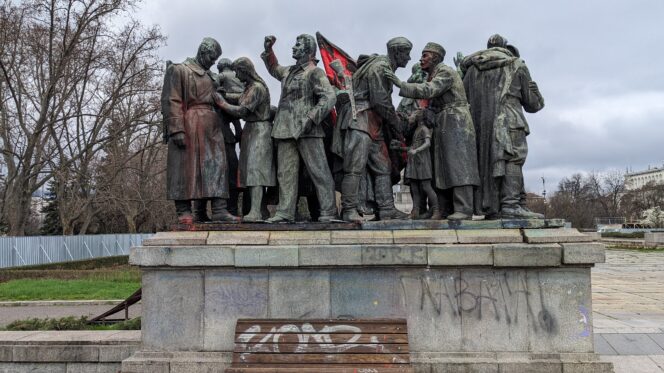The Britain You Know Was Created by European Immigrants
An island of strangers.
by Juliet Jacques
10 July 2025

In the 1930s, as fascism engulfed Europe, a wave of artists, writers, filmmakers, architects, photographers, designers and publishers – mostly Jews and communists – came to the United Kingdom to seek safety. Owen Hatherley’s latest book, The Alienation Effect: How Central European Émigrés Transformed the British Twentieth Century, published in March, is a collective biography of them. The book aims to shed light on just how much of what we might consider quintessentially British, from Penguin Press to the Royal Festival Hall, was created by immigrants.
“I published Modern Buildings in Britain: A Gazetteer in 2022,” Hatherley tells me. “In the introduction, I tried to work out how modern architecture ended up in Britain. Its rudiments were invented here – steel frames, iron and glass, bridges by Isambard Kingdom Brunel and William Barlow – but the modern movement in architecture and design [was] imported.”
By the end of the 1920s, the United Kingdom had modern literature – especially if one includes Irish work published before the partition of 1922 – but its visual culture was thoroughly outmoded, says Hatherley. This was largely because of a “pretty middle-class belief that modern culture happens in France”, which had led the British intelligentsia to ignore developments in New York, Moscow, Prague and Germany. That is, until the Europeans arrived in the 1930s, and forced a reckoning.
These new arrivals took pains to understand British culture – the German-British art historian Nikolaus Pevsner even went so far as to chronicle the buildings of every county in England, though they never lost their sense of alienation in a country that remained deeply insular. Over time, they changed the way we see the UK, quite literally.
“There were illustrated magazines in Britain in 1930, but they weren’t very good compared to those in Germany, Hungary, Poland, Czechoslovakia or the USSR. In Germany, the magazines were often aligned to the political left, with workers being given cameras and their pictures appearing alongside John Heartfield’s anti-Nazi photomontages. Stefan Lorant, a Hungarian photojournalist and filmmaker, brought this to Britain. Lorant left his home country after the Hungarian Soviet Republic was crushed in 1919, and Communists and Jews were purged. The Communist exiles mostly went first to Austria or Germany, then Paris or Amsterdam after 1933, then the UK (Lorant eventually moved to the US after failing to get British citizenship).
Lorant started various publications in the UK that were imitations of German ones, hiring fellow German emigrés such as photographer Bill Brandt. The most important was Picture Post, a photojournalism magazine that ran weekly in the UK from 1938 to 1957, and which, together with the Daily Mirror, was widely viewed as critical to Labour’s 1945 general election win. Picture Post published a significant amount of work on the subject of economic and urban planning, anti-fascism and, unusually for its time, anti-racism. Picture Post photographers went to Cardiff – one of the few places in the UK with a significant Black community – and documented it. The magazine was never communist or Marxist, but it was socialist, belonging to the world that ushered in things like the Festival of Britain or the BBC’s golden years.
The émigrés of the 1930s found a country with plenty of parallels to the Britain of the 2010s, says Hatherley. “London and the West Midlands were doing relatively well, but the Great Depression had caused catastrophe in south Wales, central Scotland and the north east of England – yet it voted in the Tories for the whole period, with the first Labour government collapsing in 1931 because they split over benefit cuts.
“It’s funny that Lorant had a pivotal role in creating this social democratic culture, because the pictures he published ended up in the Hulton Archive – if you see reactionaries using an image to illustrate a point about the good old days when you could leave your front door open, it was usually taken to show the misery caused by British capitalism.”
Those who wanted to find a stereotypical English upper-middle-class society were able to, and often made their way into the bourgeoisie, says Hatherley. Others, having never planned to come to the UK, didn’t know what to expect – and were bewildered by the damp, lack of central heating and insulation. Hatherley cites the painter, writer and socialist writer Fred Uhlman, who settled with his wife in Hampstead and found a “place that somehow sat out the 20th century”, which was “quite attractive when you’re trying to escape fascism”. The central European artists sometimes amused themselves by going to the Tate and laughing at how apolitical and formally conservative the modern British painters were, but this cultural backwardness made life impossible for the more innovative, uncompromising artists – the brilliant Kurt Schwitters, noted in Germany for his collages, Dada poetry and sculpture, died in poverty in Cumbria in 1948.
“No one got his photomontages,” says Hatherley, “but this style was picked up by British pop artists like Eduardo Paolozzi, Richard Hamilton and Pauline Boty. This was despite Schwitters actually understanding the UK, as you can tell from his story The Landlady.”
While the émigrés struggled with aspects of British conservatism, Hatherley reckons their presence could have intensified it. There was the question of whether British conservatism was reinforced by their desire to live in a country relatively untouched by the ideological extremes of the inter-war period, but some of the émigrés sought out a British left, especially when they went outside London. “Josef Herman is one of the book’s heroes,” says Hatherley, “a Jewish painter from Warsaw who went to south Wales and bonded with the small industrial communities, sharing the idea that socialism should be a way of life.” The son of a cobbler in Warsaw who survived anti-Jewish pogroms at the end of World War I, Herman became a trade unionist and Constructivist designer. He left Poland for Belgium in the late 1930s, but after the Nazis invaded his new country, set off for the Kent coast – the Foreign Office sent Herman to Scotland to connect with the exiled Polish community there, and he worked on plays with the Glasgow Unity Theatre before finding his home amongst the miners in the Valleys.
This is not to say that the UK was free from oppression – far from it. After the Nazi invasion of France in May 1940, the government separated “aliens” into three categories: C, for those considered “friendly”; and A and B, for those seen as enemies. “Everyone with a German or Austrian passport was considered an enemy alien,” says Hatherley. “It’s incredible that MI5 couldn’t understand that Jews and Communist Party members weren’t likely to support the Nazis.” At first, the idea was to deport them all to settler colonies, but they ended up in camps around the British Isles, with different nationalities separated by barbed wire fencing, but often with little effort made to separate Jewish men from Nazi sympathisers. Some, including Uhlman, ended up interned on the Isle of Man during the second world war, contradicting the story Britain likes to tell itself about being an oasis of tolerance amidst the continent’s descent into totalitarianism.
The book’s intervention into narratives about Britain’s political and artistic culture is double-edged, says Hatherley. Take one of the book’s characters, the Marxist writer Isaac Deutscher, who escaped from Poland in the late 1930s, and became an Observer correspondent and major 20th-century historian. “Deutscher was very critical of the New Left Review and the British left in general for what he called ‘national nihilism’ – the belief that Britain must be the worst place on Earth. He thought this was silly – a pose that intellectuals have all over the world,” Hatherley says.
“Since the late 1970s, the UK has been more multicultural than anywhere else in Europe apart from parts of France, and more at ease with it. In the last few years, people have tried to smash that, and we’ve had the Windrush scandal, stop and search, the riots last year, and other things, but other parts of Europe had, and still have, a much more exclusionary sense of nationality. So, I haven’t written a book about how the UK is ‘rainy fascism island’ – it’s about how culture is formed.”
Juliet Jacques is a writer, filmmaker, broadcaster and academic.


